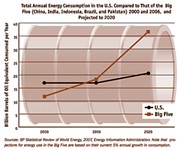Unsettling Settlement
By Robert Bryce, Fri., June 20, 1997
Deerfield's lawyer, Steve Drenner, quickly filed a lawsuit known as Deerfield v. City of Austin, arguing that Deerfield's project was protected by SB 1704, a bill passed in 1995 by the Texas Legislature which mandates that a development project will be governed by the development rules in effect when a developer receives approval for his first permit application. Drenner said the president of the general partnership that owns Deerfield, William S. Walters III, did not want to develop the project under S.O.S. If the tract, which is located on the Edwards Aquifer Recharge Zone, has to comply with the S.O.S. ordinance, it would be limited to no more than 15% impervious cover.
On May 15, after a long discussion with Martin, the city council agreed to settle the case. On a vote of 5-0-1 (Griffith absent, Goodman abstaining) the council agreed to a deal that allows the owners of Deerfield to use about 30% impervious cover.
On May 22, Bill Bunch, the chief lawyer for the S.O.S. Alliance, notified the city that the Alliance was seeking to intervene in the Deerfield v. Austin case. In his pleading filed with the Travis County District Clerk, Bunch wrote that the council's May 15 decision to allow Deerfield to develop outside of S.O.S. "makes clear that the City does not adequately represent the interests of the Alliance and its members." In its pleading, the Alliance contends that the settlement (which was subsequently signed on May 29) with Deerfield violates the S.O.S. ordinance, the city charter, and Texas Open Meetings Act because the council adjusted the application of the ordinance without holding a public hearing on the settlement.
Drenner contends that the settlement with the city "didn't have any effect on water quality and may have a positive impact from a water quality perspective." He adds that the zoning change allowed the developer to cluster the multi-family residential housing and move it further away from a nearby neighborhood. "This is one of those projects that was going to go forward one way or the other," Drenner says. "Reconfiguring the project so it could be further off the boundary line with the neighborhood and in a manner that didn't kick the impervious cover up, made a lot of sense."
Bunch says the Deerfield tract is important because it abuts the city's Goat Cave Preserve and because it contains several recharge features. "A major thrust of the S.O.S. ordinance was to stop the council from doing deals," said Bunch. "And that's what this is. They did a deal and that's explicitly prohibited in the ordinance."
A hearing on S.O.S.' intervention in the lawsuit has yet to be scheduled.
Circle C MUD Fight
The trial is over. The court-ordered mediation is over. But a legal decision on the future of HB 3193 won't be rendered for at least six weeks.
The controversial bill, passed in 1995 by the Texas Legislature, exempts some 8,000 acres in southwestern Travis County from the city of Austin's water quality laws and it preempts the city's ability to annex the area, which includes four municipal utility districts at the Circle C development. The legal fight over HB 3193 is the most recent courthouse collision over legal issues at Circle C, which is now controlled by FM Properties, a subsidiary of New Orleans-based Freeport-McMoRan and Phoenix Holdings, a privately held company headed by flamboyant developer Gary Bradley.
You may recall that Sen. Gonzalo Barrientos of Austin worked hard to derail HB 3193 during the 1995 session. Barrientos filibustered twice in an effort to kill the bill. The first time, he talked more than eight hours; the second, for more than 12 hours. On the floor of the Senate, Barrientos said the bill would create a "land of Oz." And he said it "ignores the Texas Constitution.... We are creating a governmental body that is the antithesis of democracy." Referring to Bradley, whose bad debts have cost federal taxpayers more than $90 million, Barrientos said the bill will authorize "a city created by a charming wizard at getting governmental assistance."
But there was simply too much time left in the session for the filibusters to be effective, so Barrientos was unable to stop the bill, which was authored by former Rep. Robert Saunders, a Democrat from La Grange who now works as a lobbyist. (According to the Texas Ethics Commission, Saunders has 13 clients, including the Lower Colorado River Authority, Houston Industries, Texas Uranium Group, and USA Waste Services.)
Last year, the city filed suit against the Southwest Travis County Water District, which encompasses the four Circle C MUDs. The city contends that the legislation is unconstitutional because it gives the water district too much power. In addition, the city argued that the bill violates the terms of agreements that the Circle C MUDs made with the city regarding annexation. In the consent agreement signed in 1983 between the city and the four Circle C MUDs, the MUDs agreed that they would not oppose annexation by the city. But under HB 3193, the city is prohibited from annexing any of the land within the MUDs, or the other 4,000 acres that lie within the Southwest Travis County Water District's boundaries. In addition, under the 1983 agreement, Circle C promised to abide by the city's water quality rules. But under the terms of the 1995 law, the development was allowed to formulate its own water quality rules.
The trial on the city's lawsuit concluded May 1. But Travis County District Court Judge Scott McCown did not rule immediately on the case. Instead, he asked the two sides to go into mediation in an effort to resolve the matter. "We did attempt one day of mediation," says Karl Bayer, an Austin-based lawyer who represented the city. "We were not successful, but it was cordial."
Now, both sides will file briefs with McCown. But he is not expected to rule on the case until some time in August. If the city succeeds on this court fight, it may file lawsuits on some of the other bills passed during the 1995 session, including a bill that exempts the Barton Creek PUD from the city's water quality regulations.
Splash!
An area that used to contain parks department offices will soon contain a variety of interactive exhibits designed to educate the public about the Edwards Aquifer. The $300,000 project, now underway at the Barton Springs Pool bathhouse -- recently renamed in honor of former Parks and Rec director Beverly Sheffield -- will focus on the hydrology and ecology of the Barton Springs section of the Edwards Aquifer, which is highly vulnerable to pollution. Exhibits will include a computer kiosk, aquariums, and a large working model of the aquifer. The project is a collaboration among nearly a dozen entities including the Austin Nature Center, the Lower Colorado River Authority, and the Save Barton Creek Association. Two-thirds of the money for the project, which is scheduled for completion this fall, has already been raised. But of course, they're looking for more donors. If you want to make a donation or want more information, call Mark Wieland at 476-3809.
Got something to say on the subject? Send a letter to the editor.








